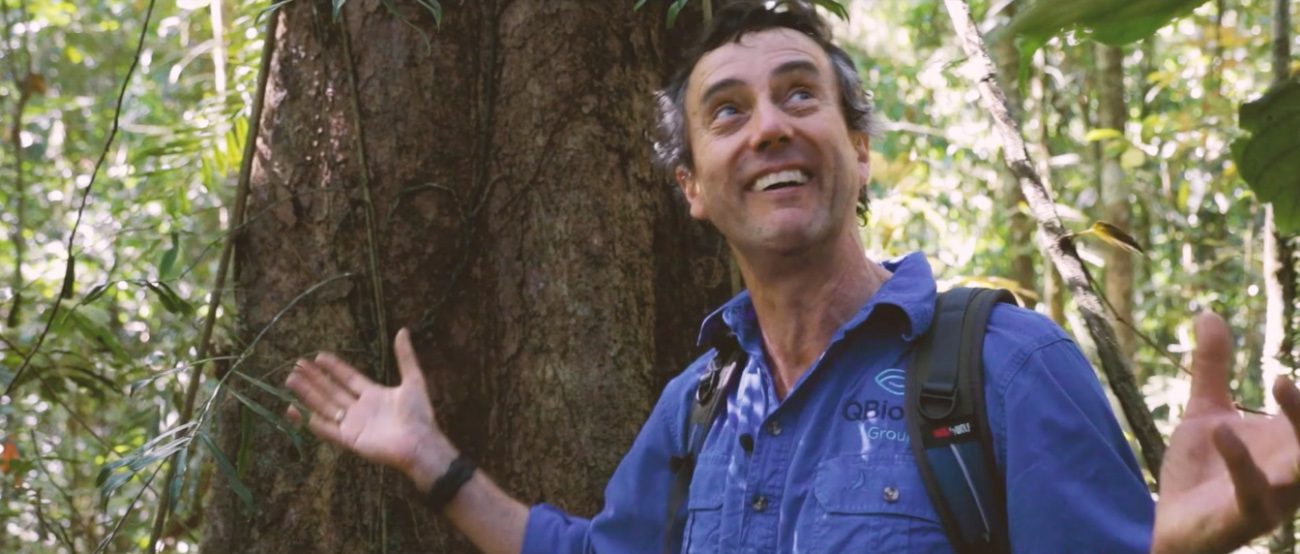Our approach to drug discovery and development
Our Science
EcoLogic™: Applying ecology in the search for new drug leads from nature; a rich and diverse source of biologically-active small molecules.
The pharmaceutical industry was founded on small molecule discovery from nature (biodiscovery). Today almost half of all human pharmaceuticals are based on molecules, or molecular scaffolds, that were discovered in nature.
At QBiotics we saw the opportunity to leverage our understanding of ecology to effectively unravel the complexities of nature's chemistry and tap into an abundant source of molecular scaffolds with potential as novel pharmaceuticals. This was the genesis of our proprietary drug discovery platform EcoLogic™.
EcoLogic™, enables us to generate directed search strategies for specific types of bioactivity, based on predictions of cell signalling pathways that are involved in plant-environment, plant-animal and plant-microbe interactions.
The result is a rich pool of bioactive molecules from the Australian tropical rainforest, with which we apply phenotypic screening to select only the most promising candidates for pharmaceutical development. This allows us to tap into nature’s abundance and remarkable chemical diversity unmatched by synthetic chemistry.
Our work is a testament to the power of nature and the possibilities it holds for the future of medicine.
Phenotypic drug screening: What is it and why do we use it?
At QBiotics we apply phenotypic screening, which has been shown to be a more successful strategy for discovering small-molecule, first-in-class medicines, compared to target-based drug discovery approaches which currently dominate the pharmaceutical industry.1
In essence, our focus in using phenotypic screening is to seek breakthrough innovation rather than just incremental advancement.
- Swinney, D.C. and Lee, J.A, 2020. Recent advances in phenotypic drug discovery. F1000Research 9:944
- Swinney, D.C. and Anthony, J., 2011. How were new medicines discovered? Nature Reviews Drug Discovery 10(7):507-519

Phenotypic screening involves:
Testing molecules from our EcoLogic™ collections:
We use cell-lines or complex tissue models of disease to screen for bioactivity; this enables us to identify at an early stage in development whether these molecules produce desirable effects, or phenotype related to the disease or disease-associated cellular processes.
Sequential approach for efficient decision making:
Only after we have isolated and elucidated the structure of a lead compound and have some evidence of its likely suitability for further development (e.g. patent, structural modification opportunities, manufacture, toxicity and efficacy considerations) do we make a concerted effort to determine (or ‘deconvolute’) the possible protein target(s) of the molecule.
Benefits derived from phenotypic drug screening:
Greater clinical potential:
Our programmes are focused on identifying molecules that modify the disease phenotype or a disease associated process, with a greater likelihood of translating in vivo into clinical potential, irrespective of how they work.
Expanding beyond validated targets:
Unlike mainstream discovery programmes, which rely on a limited number of validated disease screening targets, phenotypic screening allows us to:
- Discover activity against previously unidentified targets, rather than examine hypothesis about disease using a single purified target protein; or
- Simultaneously affect multiple targets, evidenced by the broad applicability of our lead molecule tigilanol tiglate.
Veterinary data to support human development
By integrating data from our real-world veterinary disease models into our drug development process, we enhance our understanding of potential drug candidates before they enter human clinical trials.
The data gained from veterinary studies provide both valuable insights on the safety and efficacy of our drug candidates, and also inform optimal treatment regimens. This crucial data forms the foundation of our human clinical trial protocols.
Furthermore, our research holds the promise of advancing veterinary medicine, as evidenced with our anticancer veterinary pharmaceutical, STELFONTA® (this link will take you to a product site that contains information that may not comply with the Australian regulatory requirements).



